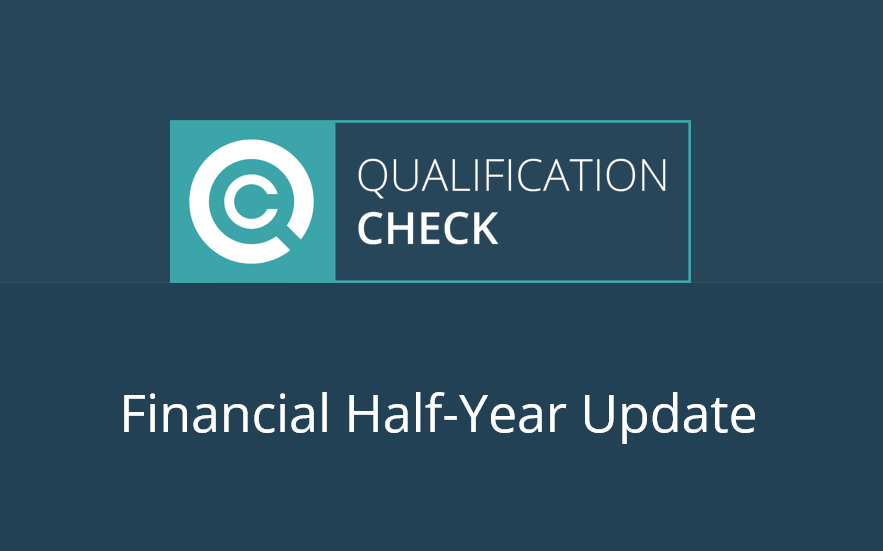
Reimagining International Verifications in a global world
Today’s international verifications are easier, less expensive and faster than you think
By Kevin Bachman, The CRA Doctor, Partner at IQubed Advisors & Host of the podcast, Background Check Radio
Employers, schools, and non-profits screen to protect their business, their customers, their co-workers, their bank accounts, and reputations. There’s simply too much at stake to not identify and root out risk before it negatively impacts you or your organization.
What is it?
A typical screen consists of a criminal history check, with similar inquiries into their education credentials and employment records, depending on the requirements of the position. These services are routinely provided in less than 72 hours, and employers use this built-in predictability to schedule start dates, training classes and onboarding programs.
At its core, a background check is a factual assessment of a job candidate’s skills, trustworthiness, and overall suitability for a job. But expert screeners know a background check is more than just a “name, rank and serial number” database inquiry. While many background checks begin the same way, there’s no way to predict how it ends. Where the investigation will lead. Experts in our field know this providing timely, accurate and compliant data requires a mix of art and science. There is a special sauce that separates quality partners from fly by night database websites.
It’s not always as smooth as it seems. And sometimes, that’s ok.
However, not everything always goes according to plan. Sometimes information that needs to be manually obtained takes longer. Delays around holidays are common. These are a few considerations that affect otherwise predictable outcomes, both in terms of the time it takes, and the burdens placed on applicants and employers to otherwise assist in the screening process. And nowhere is this more common than international screening.
What is interesting is the choices that are made when employers and screeners are faced with the prospect of unpredictability; asking applicants to fill out a few extra forms, spending a few extra dollars and waiting a few extra days. The uncertainty of those outcomes combined with the potential aggravation on the part of employers and customers…What happens then? Often, nothing.
Yes, when faced with those choices, employers often choose NOT to screen!
It’s not just their fault
Employers aren’t making this decision solo. Sometimes they’re guided there. See, screening companies don’t want to create more risk for their clients, but they also don’t want to get yelled at either. Screening internationally is one of the top reasons why an employer would get frustrated with their partner. Frustration generates risk. Frustration generates fear on the screener’s part. Fear an employer would leave.
There are other considerations which make international screening more less attractive. International checks cost more. It’s true. Verifying information in Peru is often harder than picking up the phone to call an office in Pennsylvania. This is an understandable reason to press pause on an international check.
So, when faced with this fork in the road, sometimes it’s safer for the screener to not strongly advocate for it. This creates a risk hole in the screening program that, embarking upon 2022, is becoming harder and harder to overlook.
I think this is a mistake. And in the past, I’ve been guilty of it too!
The landscape has changed. So, we need to change on our end too.
Ironically, 20 years ago, international screening was not very difficult. The process was easy. Almost too easy. Criminal records and falsified credentials were rarely uncovered. Information (mostly clears and confirmations of applicant supplied info) flowed easily through the system, and everyone was happy. I call this International 1.0
About 10 years ago, as more employers and organizations began to conduct international screens, researchers in the field learned there is a lot more nuance that meets the eye. Sometimes a required form was updated 3 months ago by a Latin American country. And instead of the system kicking back a clear, it was flagged for that reason. The wrong color of ink was used, so the request was rejected. These supposed “improvements” did just that. It improved the process and made it more accurate. I call this International 2.0.
So now, there was much more awareness of processes and procedures. Multiple data providers emerged around the globe to support screeners and conduct better research. Yes, sometimes candidates had to fill out some additional paperwork. The process became better and more accurate. But in some areas, it also began taking a little longer and costing a little more.
So, ironically, fewer people wanted it.
And because we didn’t want to get yelled at by clients and didn’t feel comfortable discussing the sometime additional cost (more on this later) for information that just so happened to be in a different country; we didn’t advocate obtaining it. In our minds, it was better to avoid disappointing a $100K client than sell an additional $50 product.
What made the product better had the unintended negative consequence of also making some people not want it. Risks to employers remained and fewer opportunities for screeners to sell this endured.
Why should we act differently now?
Because it’s not 2012 anymore.
Those better but more difficult changes between what I call International 1.0 and International 2.0 have been seared into the minds of most screeners.
It’s really that simple as that. But the good news is, we’ve been in International 3.0 for a little while and we don’t even know it.
What is International 3.0?
International 3.0 is verifications and criminal checks in a smarter, more interconnected world.
There have been improvements in what I call the 4 P’s. There have been advances by Providers, improvements in Paperwork, enhancements in Progress and reductions in Price.
Providers are more attuned to specific processes in specific countries. There are fewer surprises in the verification standards in Peru than there were in the past.
Paperwork requirements and processes are more clearly understood up and down the hiring chain. Applicants are presented with documents earlier in the screening cycle, enabling screeners to complete international searches concurrently with domestic searches, shortening the time to hire.
There’s greater transparency for applicants to see the Progress of their screen in real time. This isn’t cloak and dagger anymore. Where everything is unknown until the great unveiling.
And lastly, Price. It simply doesn’t cost as much. Advancements in knowledge, a better understanding of what is required, and technology gains have driven costs lower.
Why should screeners care? (Part I)
Knowing something could have been found but wasn’t even looked for, is the underpinning of the negligent hiring doctrine. As screeners, we know this is bad for end users.
But it’s also bad for us. Historically, screeners lost out on (1) opportunities to sell more, (2) increase profits, (3) close risk holes for their clients and (4) deepen relationships as a trusted partner. Four really good things we want to happen in our businesses!
Why should screeners care? (Part II)
For as the world gets faster and more interconnected, thankfully, many of these challenges are disappearing. But CRAs have been slower to adapt to changing conditions on the ground, missing out on what many of us believe will be one of the fastest growing, untapped portions of the screening market.
The good news is, we’re seeing evidence the market is moving in the right direction. For many employers around the globe, the idea of doing international screening has long been a foreign concept (pun intended!).
But that is beginning to change. As barriers get broken down, as money and information more freely travel the world, employers and institutions alike recognize they can no longer look the other way when an applicant or future business partner’s employment or education history just so happen to have taken place in a different country.
Three consumer reporting agencies have gone public in 2021; First Advantage, Sterling and HireRight. In each of their public filings, they point to the international market as a significant, yet untapped market for screening services. Billions of dollars of opportunity. With a B.
Guess what? You’re not going to get it all! But how about a $100MM of it? $10MM? 1MM? Stop me when I come up with a number that doesn’t interest you.
Why should screeners care? (Part III)
The value proposition is changing.
Industry insiders know Equifax has recently raised prices to access data through their “The Work Number” product. I’m not judging Equifax on how they try and serve their clients and make their money. I applaud their efforts to obtain and provide increasingly more data that can be useful to organizations across a variety of different needs. The screening industry’s customers need some of the data that Equifax can provide.
But employers do not have limitless budgets to screen new hires. Students and nonprofit organizations do not have always have the financial flexibility to obtain every piece of attainable information.
So because, broadly speaking, the cost of domestic U.S. based employment verifications from 3rd party providers is increasing, and the cost of international verifications is decreasing, buyers are evaluating the value of what is being obtained relative to the cost.
Organizations and screeners I talk to have begun to ask themselves, maybe, for a similar price, it’s better to verify the international education degree from Oxford rather 6 months of employment history 6 years ago in Oregon.
We need to (re)adjust our lens moving forward
There will always be a place in the future of our industry for products and services we’ve provided in the past. There will be no 100% transformative events in our industry that render obsolete everything that has been done in the past.
But there will also 100% be new techniques, new paradigms, new products, services, and processes that cutting edge screeners will adapt to meet the changing needs of a global marketplace.
What is so exciting is we typically see these changes only when looking backward. We see, only with the advantage of hindsight, subtle shifts that have given way to a truly better, faster, more efficient, and more profitable means of running our business. It’s rare we have the opportunity to clearly see one in the moment.
This is one of them. Go get it.
About The Author
Kevin Bachman is The CRA Doctor, a Partner in IQubed Advisors and host of the podcast, Background Check Radio.
With 20 years’ experience, he is an employment screening thought leader and industry executive providing financial, strategic and operational solutions to owners and senior management to increase their compliance, client satisfaction and profit. He advises private equity and venture capitalists on investment opportunities, and helps employers create screening programs and choose the right partners.
He is frequently invited to write, speak and present by the Professional Background Screeners Association (PBSA), the Society for Human Resource Management (SHRM), employers, screeners and vendors.
Kevin is the Chair of PBSA’s Background Screening Credentialing Council, which oversees the industry Accreditation Program. He also serves as a Steering Committee Member on the Industry Practices Committee.


